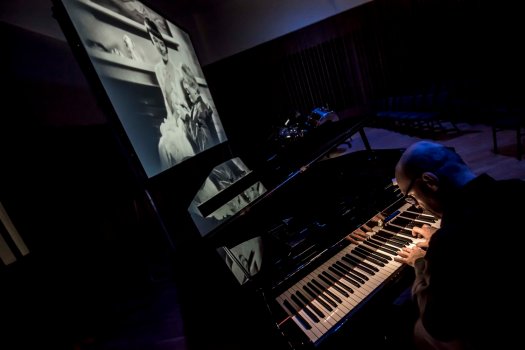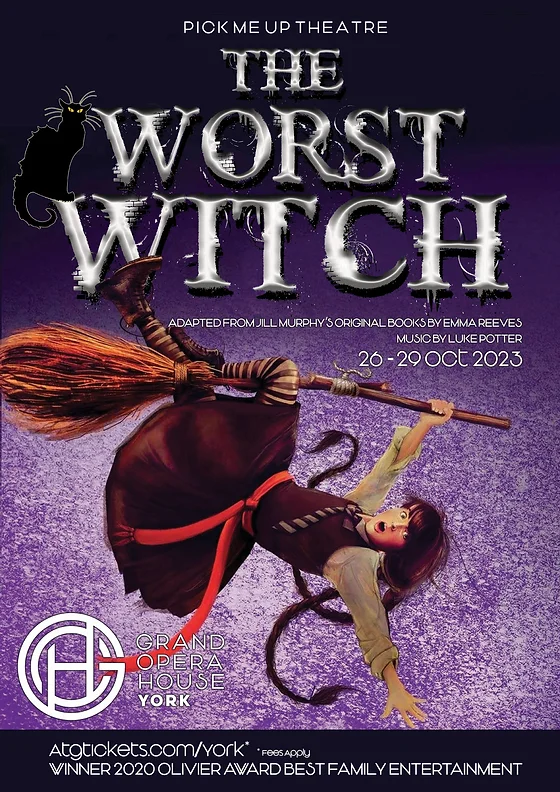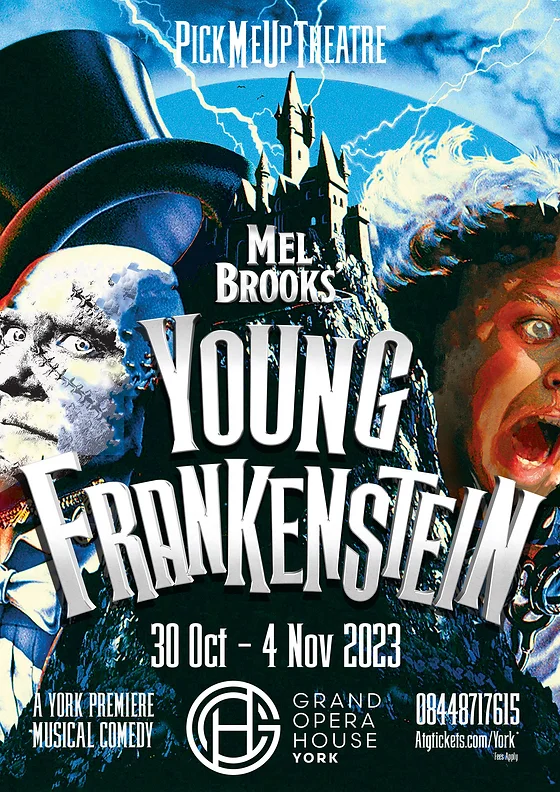
THEATRE@41 chair and actor Alan Park is in the director’s seat for the first time in 15 years, steering the York Settlement Community Players through the Russian political quagmire of Government Inspector.
David Harrower’s adaptation of Nikolai Gogol’s satirical exposé of hypocrisy and corruption in high places will run from tomorrow at Theatre@41, Monkgate, York, where Park’s ensemble cast of eccentrics will undertake a fun, chaotic journey through 1980s’ Soviet Russia in a plot rooted in a simple case of mistaken identity.
“Communism is collapsing, it’s every man, woman and dog for themselves. What could possibly go wrong?” asks Alan, as the bureaucrats of a small Russian town are sent into a panic by news of the government inspector’s imminent arrival.
Harrower’s version premiered at the Warwick Arts Centre in May 2011 and transferred to the Young Vic, London, later that year. Now it provides “the perfect platform” for Settlement Players’ 14-strong ensemble.
”Directing this production came out of me having performed Tom Stoppard’s The Real Thing with Settlement at the Theatre Royal Studio in February,” says Alan.
“I enjoyed the acting company, the production team and the whole creative process so much that when the call-out came for a director this autumn, I was keen to do a play with lots of actors.
“There are some incredibly talented actors in York, and I wanted to do something that would bring the best out of them as an ensemble, playing loads of parts, and I needed a play that would facilitate that.”
Gogol’s Government Inspector was suggested to him, and once he came across Harrower’s adaptation, it was the perfect fit. “David’s version is fun, it’s fast-moving; the dialogue zips along, and it really lends itself to these 14 actors, who have created the community of this Russian town, where they are all out for their own interests only…and then discover the government inspector is coming to town,” says Alan.
He last directed a play in his professional acting days in London, where he ran workshops and oversaw youth productions. “I’ve been looking to do something for a while, but there has never been the window of opportunity, as I have a full-time job as well as running Theatre@41 and performing in plays.” He is a father too. “My kids look at me and wonder who I am!” he says.
He has revelled in directing Harrower’s script. “I looked at a few adaptations as I wanted to find a good translation, and this one stood out. Julian Barratt, from The Mighty Boosh, was in the Young Vic production, and this was the script that I couldn’t put down. It told the plot really well and suited what I wanted to do.”

Settlement Players’ staging of Government Inspector comes against the backdrop of Putin’s stultifying dictatorship and warmongering. “We can’t get away from it being a Russian play! It’s a great satire on Russia, and there’s never been a better time to poke fun at what Russia still appears to stand for.
“Harrower has set it in the late-1980s, when everything was crumbling in Russia, and if we’re making any comment on Russia, it is that the whole thing is ridiculous. There’s no way anyone would think that the Russian way is the best way forward.”
Rather than attempting Russian accents, Alan has encouraged his cast members to use their own accents. “I was inspired to do that by the Chernobyl TV series,” he says.
In choosing that cast, Alan was keen to avoid holding auditions with three faces staring out from behind a desk. “Instead we had workshops, playing games, and went from there,” he says.
“There will be familiar actors, but not necessarily in familiar roles, like Andrew Roberts, who’s not done big roles before, playing Khlestakov [the inspector’s role]. Mike Hickman, who was in The Real Thing, is a fabulously instinctive performer, who just gets it straightway, and he’s perfect for the Mayor, who’s losing his grip on everything and gradually losing control.
“He’s also a massive fan of Tony Hancock, who appeared in The Government Inspector in 1958, and so he’s delighted to be doing this play.”
Adam Sowter and Florence Poskett, from the York musical comedy duo Fladam, have amusing cameo roles as the Police Superintendent and Mishka respectively, while University of York drama student Katie Leckey will bring her physical comedy skills to Dobchinsky and Pearl Mollison steps out from the wings to play the Mayor’s daughter after several years of stage managing shows.
Musical director Jim Paterson will lead a live band, made up of cast members, such as Matt Pattison on guitar, Sowter on keyboards and Poskitt on accordion, through a liberal dose of Eighties’ rock ballads.
Judith Ireland’s costume designs, all Eighties’ tracksuits, suits and shoulder pads, will complement a Brutalist set of grey blocks and faded Russian graffiti.
“My main aim is that the production should be actor led, and I’m always keen for a set to let the actors do what they want,” says Alan. “That’s why there’ll just be the blocks, and slogans on every wall, with Russian propaganda to represent the decaying town.”
York Settlement Community Players in Government Inspector, Theatre@41, Monkgate, York, tomorrow (24/10/2023) to Saturday, 7.30pm and 2.30pm Saturday matinee. Box office: tickets.41monkgate.co.uk.












































